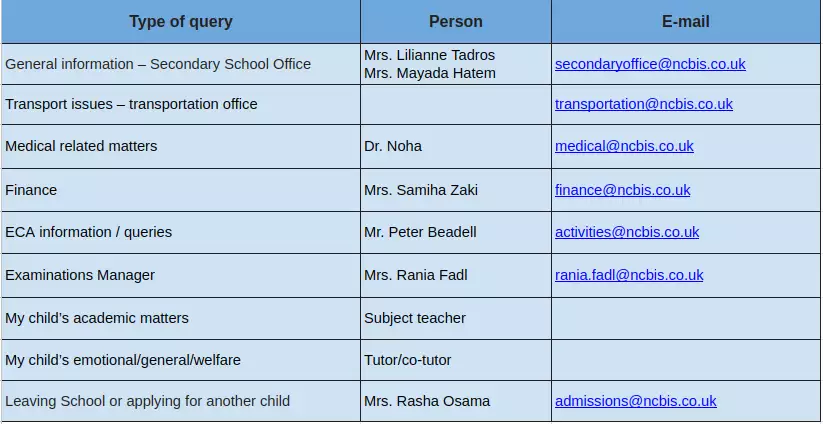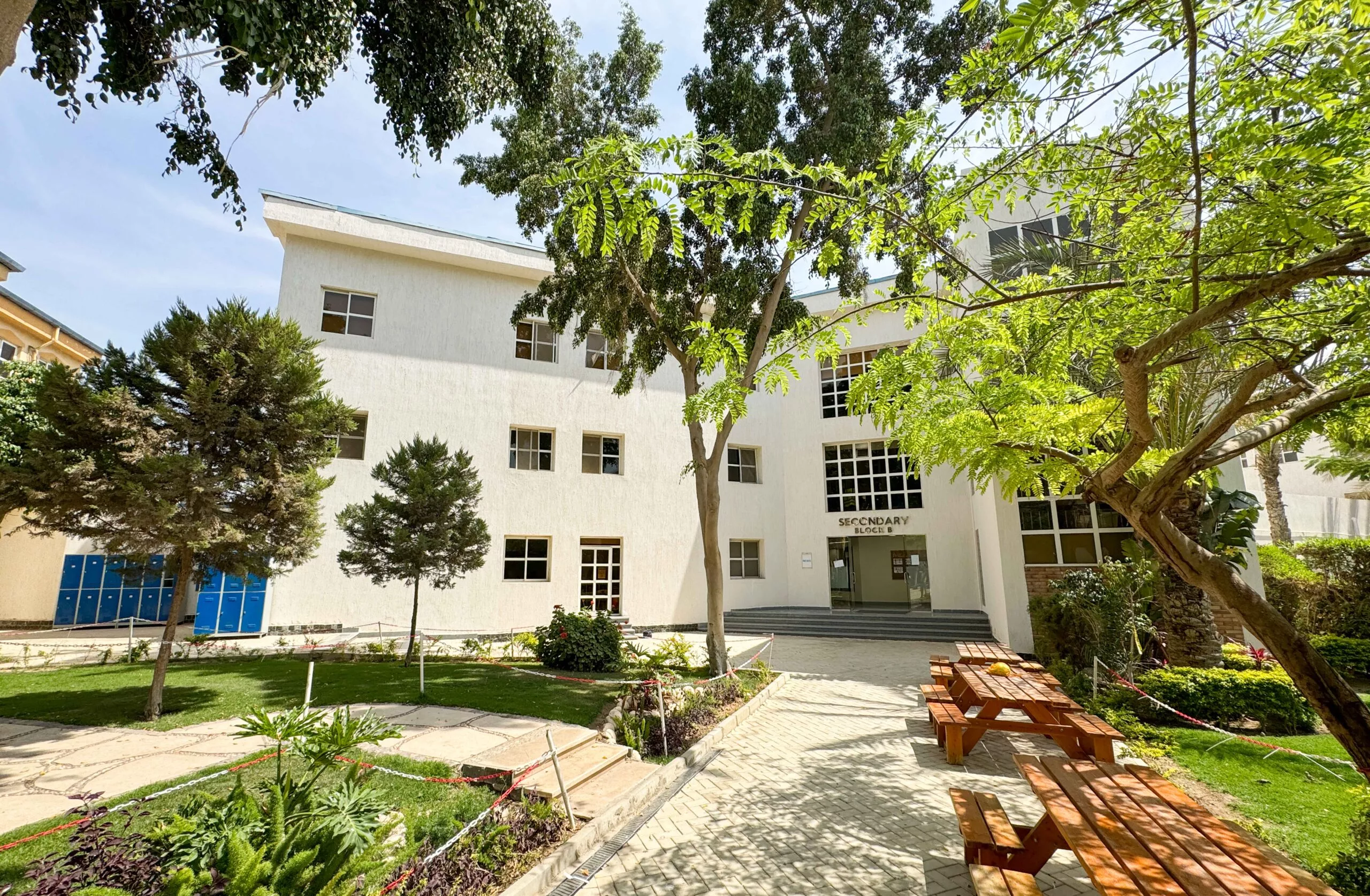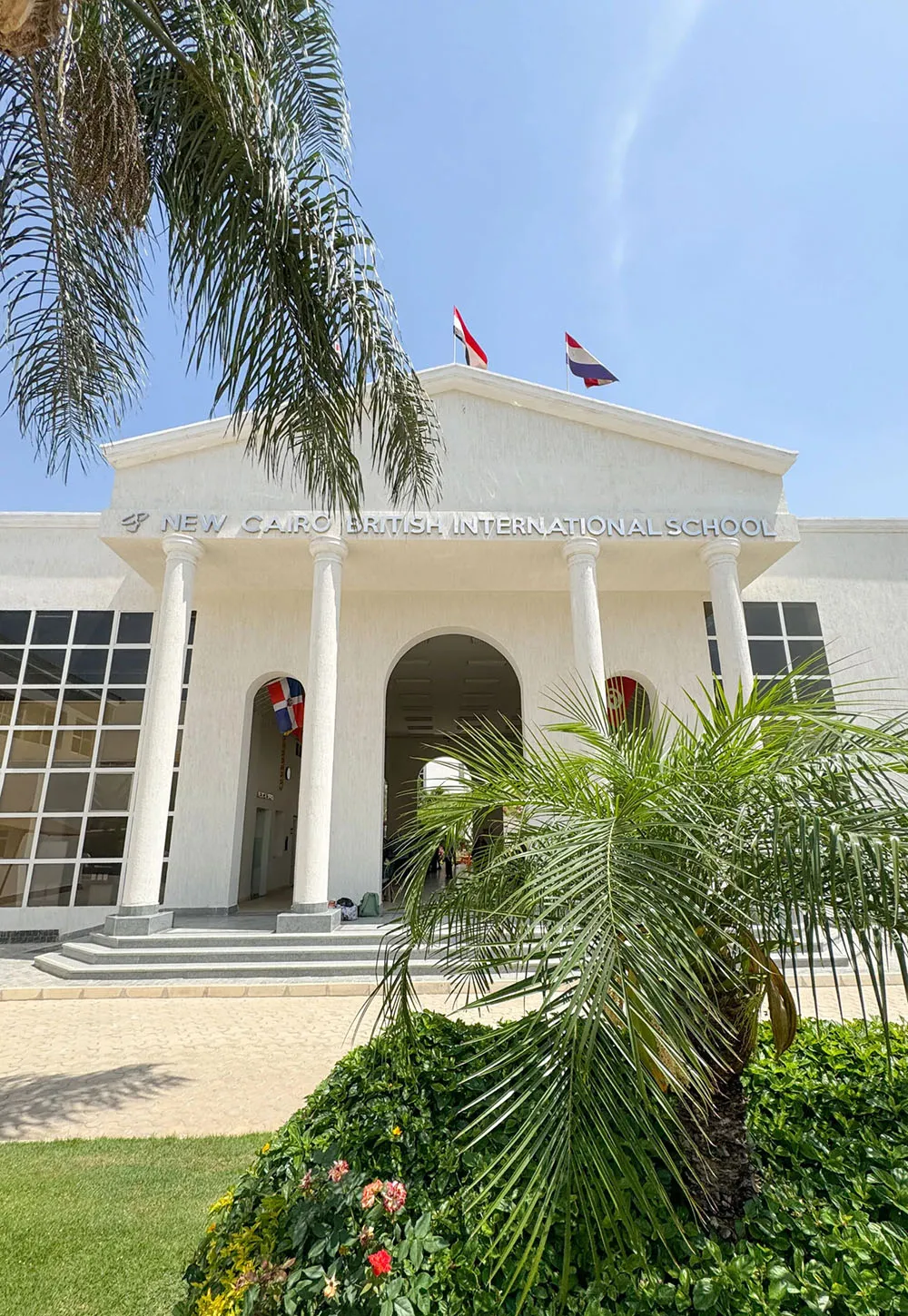Welcome From Our Head Of Secondary
Ian Midgley
Dear Students, Parents, and Community Members,
It is with great pleasure and a profound sense of commitment that I welcome you to another exciting year at NCBIS. As the Head of Secondary, I am delighted to provide you with some key pieces of information that are part of shaping our school community.
At NCBIS, we are dedicated to fostering an environment that not only prioritises academic excellence but also nurtures the holistic development of each student – ‘Bring out the best in everyone!’ Central to this are the relationships between students, parents, and educators. Mutual respect forms the cornerstone of these relationships in our community, creating a safe and happy environment where every student can thrive. A culture of respect and collaboration extends to all interactions within our school, fostering a supportive atmosphere that allows each student to reach their full potential.
At the heart of our educational philosophy is the belief that our students should emerge as independent, resilient, and self-motivated individuals, ready to take on the challenges of an ever-changing global landscape. We strive to cultivate internationally minded young people whose curiosity and global awareness drive them to explore, innovate, and contribute meaningfully to the world around them.
Please take your time to read the information, as the pages that follow provide you with key information aimed at making the Secondary School a safe, friendly, and enriching place for everyone to learn and succeed.
I am excited about the journey ahead and confident that together, we can create a dynamic, inclusive, and inspiring learning environment. Thank you for your trust and partnership as we work towards empowering our students and ‘bringing out the best in everyone.’
Ian Midgley
Head of Secondary
NCBIS students:
- are polite, respectful and courteous to all members of the school community.
- are responsible for their actions and develop self-discipline in life skills.
- are respectful of the property of others and caring of the school environment.
- are punctual for all school activities.
- move sensibly around school and with a minimum of noise level so as not to disturb others.
- wear the correct school uniform.
- have a positive work ethic and meet deadlines and personal targets.
- enter classes quietly and purposefully, in readiness to work.
- act as role models for younger students.
- use English when instructed in lessons in line with our language policy, on buses and when representing the school (exceptions to this rule are: Dutch Primary School and language classes)
- Ensure that mobile phones and any other devices are used as stated by the school policy
NCBIS parents:
- read and abide by the school documentation
- attend, whenever possible, school events and parent-teacher meetings.
- ensure that they are available within 10 working days, when there is a request to attend a meeting about their child’s progress or behaviour.
- assume the responsibility for the attendance and punctuality of their child.
- ensure that at least one parent is home during the school term, where possible, and ensure that if both parents are away, that the school is notified.
- encourage their children to meet homework deadlines
- ensure their children wear the correct uniform or appropriate clothes.
- make the school aware of any learning issues and act on any recommendations requesting assessments or help from outside agencies.
- are punctual for school events and when collecting students after events and trips.
- support school policies and guidelines for behaviour and support the school in enforcing any sanctions that are set.
- encourage and support their child’s effort to learn by providing time and space for their child to study, and by prioritising school and schoolwork during the school year.
- ensure that their children come to school properly equipped.
- inform the school of any concerns or problems that might affect the student’s work or behaviour.
- respect the teachers’ work time and make an appointment to discuss any issues.
- encourage the use of English in school and on transportation provided by the school.
NCBIS teachers:
- are role models for the students.
- apply NCBIS policies consistently.
- use appropriate language to all.
- adhere to the dress code.
- participate in ECAs and whole school events.
- are proactive with parent / teacher relationships, and are open and welcoming.
- respond to parental enquiries within 2 working days and arrange meetings as soon as is practical / possible.
- are aware of the needs of all learners, including those in Learning Support and EAL.
- respect confidentiality.
- are ambassadors for the school at all times.
- provide a positive learning environment.
- display a sensitive and caring attitude to all.
- always act in a culturally sensitive manner ensuring that any comments are respectful of the local culture and the culture of any member of the school community.
- plan engaging lessons that are inclusive of all learners.
School Hours
The standard school day is from 7:45 am to 2:40 pm. All students in school after 2.40 pm must be part of an ECA, CAS activity or be present with the permission of a member of staff and under that staff member’s direct supervision. Students arriving late or leaving early must sign in and out at the Secondary School office.

Pastoral concerns:-
The tutor is the first point of contact for any pastoral issues; this might include settling in issues or recurring issues with organisation.
Academic concerns:-
Any specific subject concerns should be addressed to your child’s individual subject teachers. For example, if you have a question about geography homework, please contact your child’s geography teacher.
If, after contacting the subject teacher or tutor, you still have further questions or concerns that have not been resolved, please contact the appropriate Head of Department.
Who do I contact for…

The school takes its responsibility to safeguard and promote the welfare of children seriously and will take appropriate action to ensure that students remain safe and free from harm. To ensure that this happens NCBIS will:
- establish and maintain an ethos where children feel secure and are encouraged to talk and are always listened to.
- ensure that all students know there is an adult in the school who they can approach if they are worried or in difficulty.
- include in the curriculum opportunities for children to develop skills that will keep them safe and from harm.
The current Designated Safeguarding Leads for the academic year Mr. Sam Hurst sam.hurst@ncbis.co.uk



